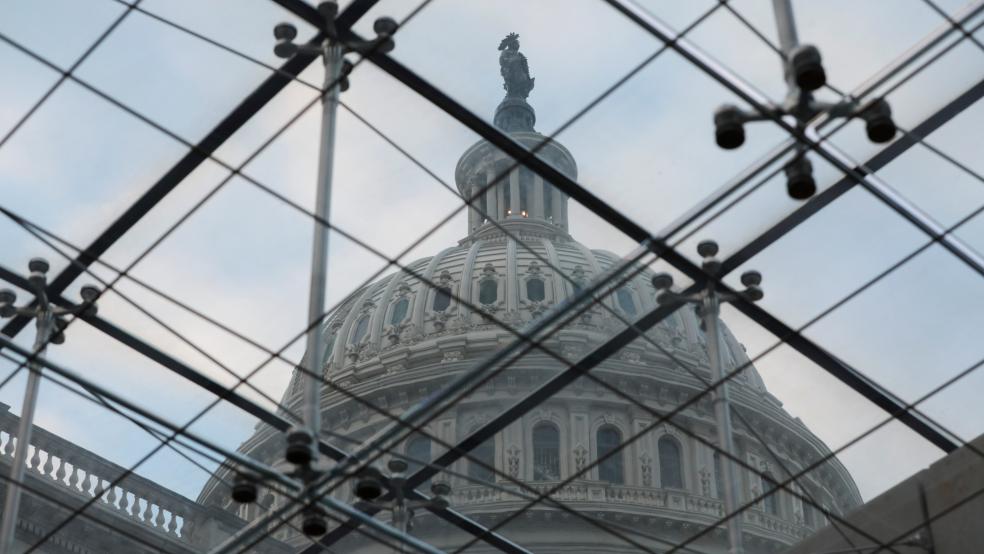Congressional negotiators announced Tuesday that they have reached an agreement on a $78 billion legislative package that would revive tax breaks for business investment and expand the child tax credit over a three-year period. The cost of the new tax breaks would be offset by ending a troubled federal program that provides credits for businesses that kept employees on their payrolls during the Covid-19 pandemic.
The agreement was announced by House Ways and Means Committee Chairman Jason Smith and Senate Finance Committee Chairman Ron Wyden, who said the legislation, The Tax Relief for American Families and Workers Act of 2024, provides “a common sense, bipartisan, bicameral tax framework that promotes the financial security of working families, boosts growth and American competitiveness, and strengthens communities and Main Street businesses.”
The details: The proposal, which still needs to be turned into specific legislative language, would phase in an increase in the maximum refundable annual child tax credit, raising it from $1,600 to $2,000 over three years (2023, 2024 and 2025), with values adjusted for inflation starting this year. It would also allow households to use either this year’s or last year’s income when calculating credits, to maximize the benefit.
For businesses, the proposal would restore certain tax benefits that were taken away to help offset the cost of the 2017 tax cuts during the Trump administration, including allowing firms to immediately deduct the cost of certain research and development investments, rather than spreading the cost out over five years, and restoring full expensing of the cost of equipment and vehicles. It would also address the housing shortage in the U.S. by expanding a tax credit that rewards developers for building rent-restricted units. And it would provide additional tax relief for households in disaster areas, as well as tax adjustments for firms that do business in Taiwan.
To offset the cost, the lawmakers propose to end the Employee Retention Credit at the end of January, rather than in 2025, saving more than $70 billion. The program has been marred by significant cost overruns and fraud.
Hoping for rapid action: The tax writers want the legislation to apply to the 2023 tax year, and with the tax season beginning on January 29, they will need to move quickly. The legislation’s fate in Congress, however, is far from clear. Speaker Mike Johnson will reportedly meet with Smith to discuss the plan later today.
The White House did not endorse the proposal on Tuesday, saying instead that President Joe Biden is committed to reviving the “full expanded Child Tax Credit” that he signed into law on a temporary basis in 2021 – a move that sharply reduced child poverty during the pandemic. At the same time, the White House said it appreciated the negotiators’ work and would review the details of the current agreement. Senate Majority Leader Chuck Schumer did back the plan, saying it would “significantly improve the lives of millions of working families and help mainstream businesses grow in today's economy.”
The U.S. Chamber of Commerce came out in favor of the proposal, citing its “pro-growth tax policies.” In a statement, chief policy officer Neil Bradley said, “With tax filing season about to begin, there is absolutely no time for delay in enacting this package.”
Child advocates also expressed support for the proposal. Wyden said it would help 15 million children in low-income families, with analysts at the Center on Budget and Policy Priorities putting that number slightly higher: “While modest in size, the proposal would have a significant impact,” the analysts wrote. “In the first year, more than 80 percent of the roughly 19 million children under 17 in families with low incomes who don’t now get the full credit would benefit — about 16 million children. This includes nearly 3 million children under age 3.”
Washington Post columnist Catherine Rampell said the proposal has little by way of downsides. “Help kids, help companies and pay for it all by reducing tax fraud,” she wrote. “That’s the terrific win-win-win deal.” The fiscal hawks at the Committee for a Responsible Federal Budget, however, warned that the proposal could be costly if it were extended beyond three years. “We estimate the plan would cost more than half a trillion dollars over a decade if the policies were made permanent without further offsets,” the group said Tuesday.




